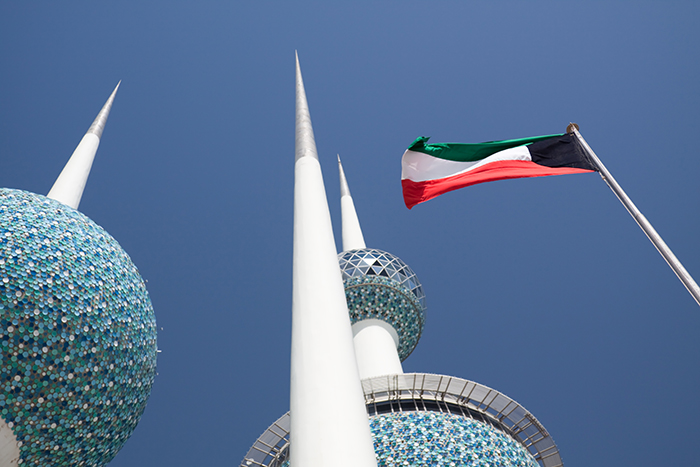Analyses / Middle East / North Africa
28 November 2024
Kuwait: Towards an Authoritarian Drift of Power

Since the accession to the throne of Sheikh Mishaal Al-Ahmad Al-Jaber Al-Sabah, born in 1940, the 17th Emir of Kuwait, he has imposed his power in an authoritarian manner. Having ascended to power on December 16, 2023, following the death of his brother Sheikh Nawaf, whom he had served as interim for three years, Sheikh Mishaal, who has spent his entire career in security, aims to break with the tolerance that he believes has led the country’s political life into a deadlock.
The strengthened control over the legislative power and the weakening of the semi-democratic system.
Until May 10, 2024, Kuwait was the only state in the region and the Arab world (except Lebanon) with a genuine legislative power. The opposition, which has controlled the Kuwaiti Parliament for several legislatures (at least three), paralyzed political life, preventing necessary structural reforms, economic changes, and investments.
As a result, Kuwait, which was at the forefront of the Gulf countries in the 1970s, now finds itself reduced to the size of its narrow borders (18,000 km²) and its population of 4 million inhabitants, with its voice no longer being heard since the passing of Sheikh Sabah al-Ahmad in 2020. The late emir was considered the sage of the region and the mediator of all interregional conflicts.
On May 10 of this year, frustrated by the intervention of a member of parliament, Abdul Karim Al-Kandari, deemed insulting to the emir and the government, Sheikh Mechaal decided to dissolve the parliament that had been elected only six weeks earlier. Some articles of the Constitution were suspended for a period not to exceed “four years.” A revision of the Constitution is planned during this period, and it is highly likely that it will not move in a more liberal direction.
The MPs are not the only ones who have suffered from this hardening of power. On September 15, the Council of Universities decided to suspend student elections in all universities across the country. The reason given was “the drift observed in the essential objectives that should govern the actions of unions.” This decision followed the seizure of computers and documents from the National Union of Students by the Ministry of the Interior. Investigations were launched into suspected financing deemed dubious by the authorities.
Sheikh Mechaal’s temperament does not lean toward dialogue. He is a man who spent his entire career within the security apparatus. Graduating in 1960 from the Hendon Police Academy in the UK, he held various positions in the police before becoming head of the National Guard.
The emphasis on the fight against corruption.
This tightening of control is manifested in various ways. The fight against corruption no longer spares members of the royal family or former ministers such as Moubarak Al-Haris, a renowned jurist and former Minister of Public Services, who was sentenced to four years of hard labor for corruption.
A sheikh from the royal family, Sheikh Sabah Jaber Al-Mubarak, whose father had held the position of Prime Minister, was sentenced to ten years in prison in the “Malaysian fund” case, a vast money laundering operation involving 4.5 billion dollars. The sheikh and his co-defendants were also ordered to repay one billion dollars and fined 500 million dollars.
The withdrawal of nationality as a governance tool.
The state’s heavy-handed approach has also been evident in recent months in the area of revoking Kuwaiti nationality. Since March 2024, the authorities have revoked the Kuwaiti nationality by ministerial decree from approximately 6,300 men, women, and children. The official reasons for this decision are that these individuals acquired Kuwaiti nationality through fraud, by providing false information or documents, or that they did not meet the conditions for extending nationality to family members. Thus, the latest decree in this regard deprived 1,400 women of their Kuwaiti nationality. Some dual nationals, such as the very wealthy and controversial businessman Maan Al-Sane’a (Kuwaiti-Saudi), have also had their Kuwaiti nationality revoked.
Tightening of conditions for the “bidoons”
This new cohort of people deprived of their nationality adds to the approximately 300,000 “bidoons” (stateless persons), representing nearly 10% of the country’s population. The deprivation of nationality makes life impossible in Kuwait. The bidoons are denied access to all public services (education, healthcare). Recently, Kuwait decided that the travel documents previously issued to them would no longer be valid. An additional tightening was imposed on July 25, 2024, when it was decided not to recognize the travel documents issued under Article 17. These passports, which differed from Kuwaiti passports by their grey color, allowed the bidoons to travel (with certain restrictions, such as needing a visa to travel to other Gulf countries, while Kuwaitis are exempt). The new measures involve the withdrawal of these documents upon arrival or departure from the territory. Airlines have been instructed not to accept passengers carrying such documents on board.
This authoritarian drift in Kuwait makes it difficult to foresee a return to the normal democratic process in the near future.

